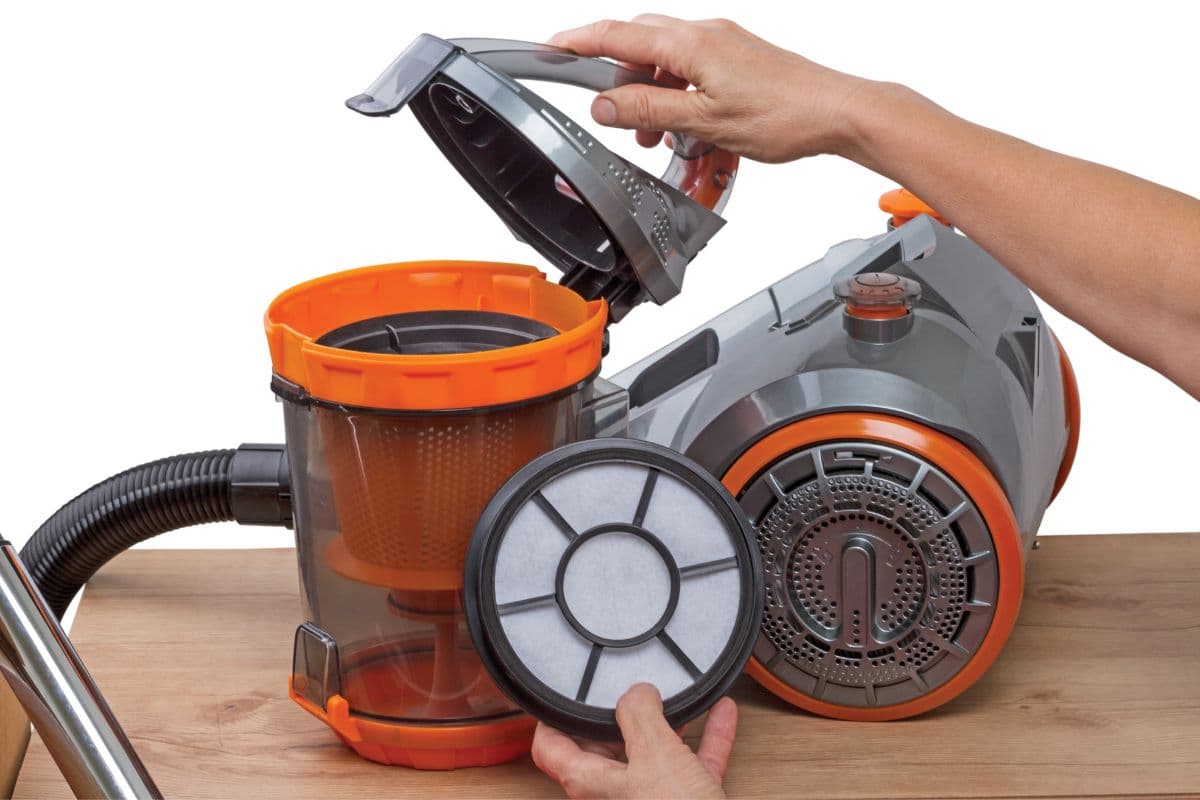Dyson is a leader in home appliances, from air purifiers to hair products, but they’re best known for their innovative vacuum cleaners. These vacuums provide top-of-the-line performance matched with durability and efficiency. The major downside to Dyson vacuums is that they tend to be extremely pricey.
A few reasons why Dyson vacuums are so expensive include its dedication to the latest technology, advanced product testing, and research investments, and patented cyclone mechanics and multi-stage filtration system. Dyson also uses only the best materials.
With multiple research labs and a commitment to the latest and greatest technology, Dyson knows how to make things that work and appeal to their customers. This article explains why Dyson vacuums are expensive to help you decide whether or not the price is actually worth it. Read on to learn more.

4 Reasons Why Dyson Vacuums Are So Expensive
As we expand our understanding of technology, devices and appliances get better and better. Vacuums are one household appliance that has steadily been improving over the years, and Dyson is the leader in this world of innovation.
Let’s look at four reasons why Dyson vacuums are so expensive and what makes this vacuum one of the most highly sought in the market.
1. Dyson Utilizes the Latest Technology
Since the company’s beginning, innovation has been at the core of Dyson’s mission. Founder James Dyson was fed up with the vacuums on the market and wanted something that met his standards as a consumer — so he designed his own.
Today, James Dyson isn’t the only man working behind the scenes to create vacuums. The company keeps up with the latest technology by utilizing the talents of teams of global engineers, developers, and scientists. These individuals work together to develop new ideas and solutions to make Dyson a leader in the latest and greatest vacuums.
Dyson’s vacuum cleaners go beyond just sucking up dirt. Many include state-of-the-art technology to provide an extra level of cleaning. For example, Dyson’s laser technology on the Dyson V15 Detect Cordless illuminates dust particles up to 10 microns in size. It also features an acoustic piezo sensor and LCD screen to show users how much of each particle (i.e., dust mites, etc.) have been vacuumed.
Of course, using the latest technology requires a great deal of financial investment. It means paying massive teams of engineers and developers to research different materials, designs, and methods to ensure Dyson creates a robust, long-lasting machine.
2. Dyson Invests in Product Testing and Research
All of Dyson’s vacuum cleaners are rigorously tested before hitting the market.
During product development, every vacuum model runs through testing for at least five years. Everything — even the subcomponents — are tested and observed to confirm everything is long-lasting and works efficiently. The vacuum cleaners are operated on hundreds of floor types, from hardwood to thick, plush carpets.
Dyson even invests in dust and dirt from various regions of the world to ensure their vacuum cleaners can handle cleaning in every part of the world. This guarantees that Dyson vacuums meet the highest quality standards for every consumer.
The company also owns many state-of-the-art laboratories for research purposes, including:
- Microbiology
- Electronic Systems
- Motors
- Battery Pack
- Energy Storage
- Machine Learning (Artificial Intelligence)
- Product Category
In these labs, scientists run research programs to better understand these systems so they know how to incorporate new sciences and technologies into Dyson vacuum cleaners. They use acoustic chambers to test noise levels and air filtration tanks to test dust and debris filtration efficiency. These teams even study household dust and examine its biological structure to learn how it interacts with Dyson machines.
Needless to say, Dyson’s teams work tirelessly to deliver high-quality devices. They do everything from redesigning motors to make them lighter yet more powerful to changing the weight distribution of a vacuum to make cleaning easier. A lot of time, money, and labor is spent on developing and manufacturing Dyson vacuum cleaners, and the price reflects this.
To learn more about why Dyson Vacuums are worth it, read my other article: 4 Reasons Why Dyson Vacuums Are Worth It.
3. Dyson Incorporates a Multi-Stage Filtration System
All vacuum cleaners implement some kind of filtration system, but Dyson incorporates multi-stage filtration in each of its vacuums. This ensures the system sucks up as much dust and particulate matter as possible while expelling the cleanest air.
Dyson achieves this through their patented cyclone technology. This technology works by separating the largest dust and dirt particles from the air. Then, it utilizes multiple cyclones to remove the smaller particles from the airflow. The smallest particles are removed using the before-and-after-motor filters. These filters remove particulate matter as small as 0.3 microns.
Their post-motor filter is High-Efficiency Particulate Air (HEPA) grade, which can remove up to 99.97% of particles from the air, including dust, dust mites, pollen, mold, and bacteria. Even the most compact Dyson vacuums feature this capability; they use smaller components but the same advanced filtration.
The Dyson V15 Detect Cordless is one of Dyson’s machines that incorporates whole-machine HEPA filtration. It’s capable of trapping microscopic particles as small as 0.1 microns.
Using advanced filtration methods requires additional financial investments in filtration technology. Additionally, Dyson must test the filters to guarantee they meet their quality standards for vacuums.
Check out this video from my YouTube channel that shows some tips and tricks,
4. Dyson Uses Only the Best Materials
It’s clear that Dyson works diligently to improve its core technology and provide consumers with the latest and greatest products. However, Dyson must also guarantee that its products have a solid structural base. This is why the company uses its resources effectively to offer the best materials possible in the manufacturing of its vacuums while also maintaining sustainability.
Dyson uses thinner, stronger plastics and longer-lasting technologies and invests in motor research to provide longer-lasting, high-efficiency motors that reduce energy use. The company has developed longer-lasting batteries and, over the years, has continuously improved its product design for better performance while reducing the number of required materials.
By focusing on excellent products and sustainability, Dyson has created a product with less to recycle (thanks to the thinner plastics), and because they last long, there’s less waste. Additionally, reduced energy use means more energy conservation.
Considering that Dyson continues to offer research in these areas, it’s safe to say that its product design will continue to become more innovative and sustainable over time.





